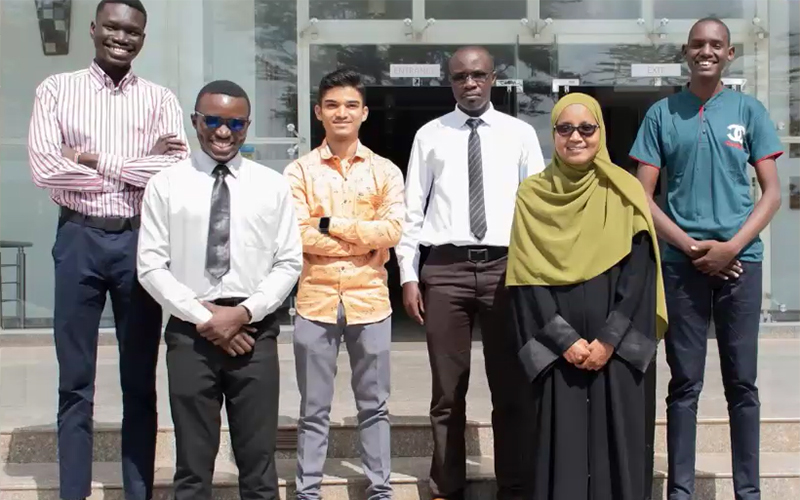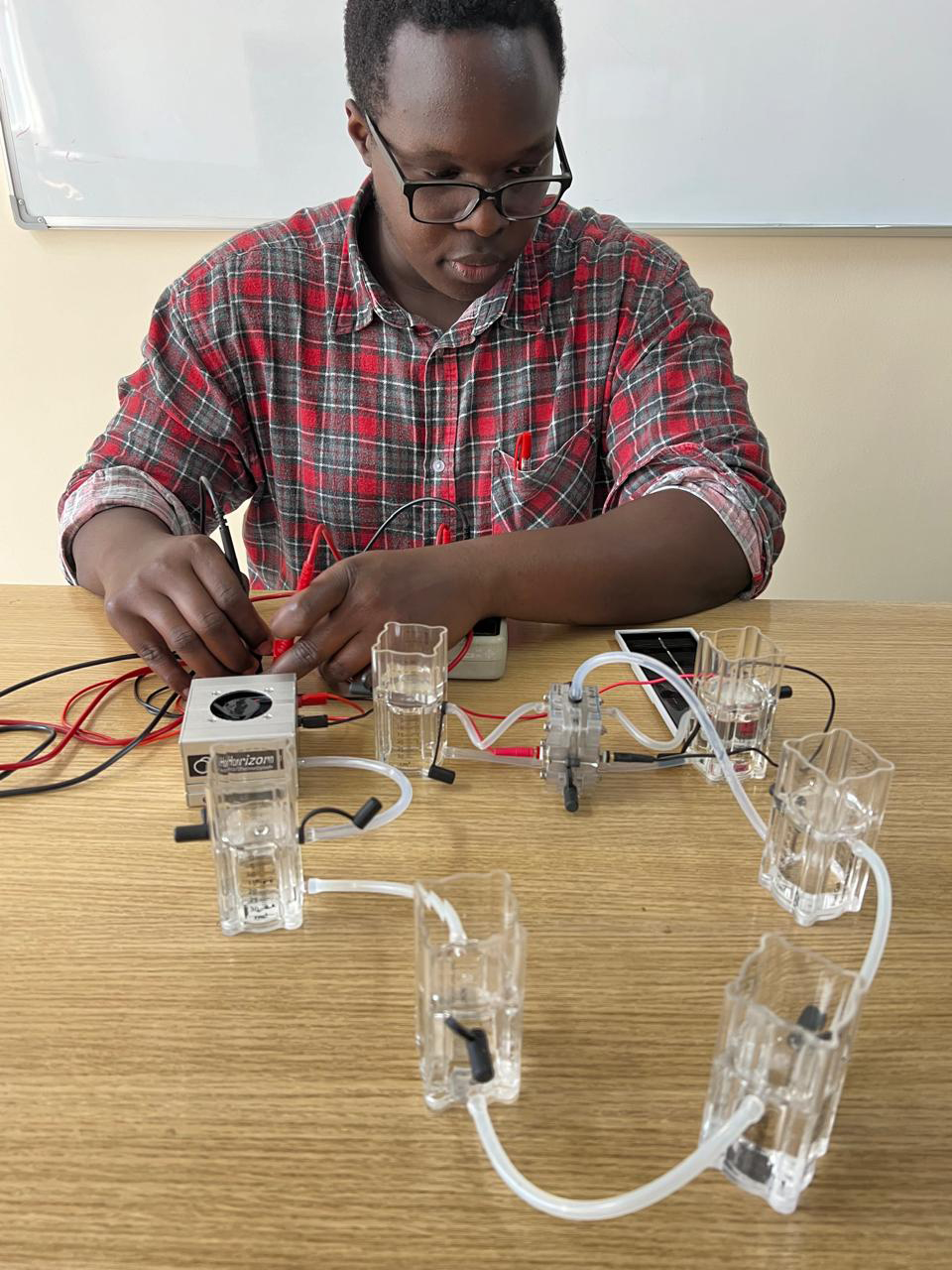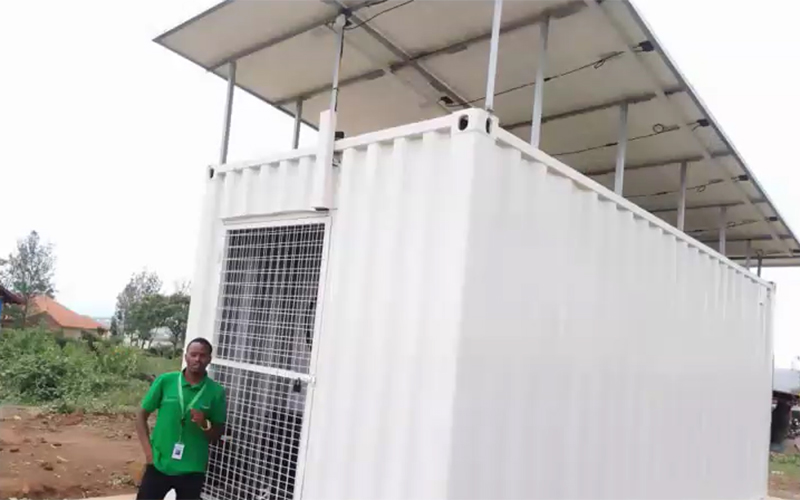Celebrating Innovation: Announcing the 2025 Efficiency for Access Design Challenge Accelerator Programme Cohort
The Efficiency for Access Design Challenge Accelerator Programme, delivered in collaboration with Energy Catalyst, has successfully completed its second round – spotlighting transformative innovations from university teams across Africa. As a flagship initiative under Efficiency for Access, the programme champions the development of high-performing, affordable off and weak-grid appliances aim to accelerate equitable access to clean energy across the world. The challenge is funded through the UK government via the Transforming Energy Access platform and the IKEA Foundation.
The programme has now finalised the support programme for this latest cohort of student innovators. After six months of intensive learning and final pitches to a panel of expert judges, these talented teams from across Africa have been awarded grants to begin transforming their concepts into impactful early-stage ventures.
Introducing the 2025 Accelerator Grantees
Strathmore University, Kenya


Trevor Atela and Andy Onyango have developed SOLGENH2: a solar-powered hydrogen energy system designed to provide consistent off-grid electricity for rural hospitals. The system integrates renewable energy generation with hydrogen storage to support reliable power supply in healthcare settings where grid access is limited or unstable.
The ITEDA SOLUTIONS team comprising of Job Ian Onyango, Isaiah Ochieng, Ruman Hassan, Ronit Mepani, and Emmanuel Sintila Lekatoo has developed a modular solar dryer aimed at reducing maize drying time and post-harvest losses for smallholder farmers. The system uses sensors and microcontrollers to monitor and optimise drying conditions, enabling more efficient and reliable crop processing in rural areas.
Noah Midikira, Anthony Mwangi, and Stefan Mari have developed Jua Coolight – a solar-powered hub that combines cold storage with lantern charging capabilities. Designed to support off-grid farmers and fishers, the system aims to improve the storage of fresh produce and energy access in remote communities.
University of Zimbabwe/Midlands State University
Aeroclock Technicals Pvt Ltd, a team comprising of Morelife Zibaiwa, Precious Chiwera, Tatenda Mugwazi, Oslie Munyangamire, and Talent Chigwagwa from Midlands State University in Zimbabwe, has developed the SunBlade Trimmer – an innovative solar-powered lawn mower. Designed to offer an affordable and environmentally friendly alternative to conventional lawn care equipment, the SunBlade trimmer also offers a semi-automated version that enhances accessibility for individuals with disabilities.
At the University of Zimbabwe, Patrick Ndayisaba, Dushime Diedonne, Pamella Uwicyeza, Dushime Dieudonne, and Divine Ishimwe Hatangimbabazi have developed a solar-powered appliance designed to reduce post-harvest losses. The system uses temperature control to maintain optimal storage conditions for fresh produce, supporting improved food preservation in off-grid agricultural communities.
Tafadzwa Chipuriro, Glynnly Masanga, Tukudzwa Munorweyi, and Calvin Kuhuni from the University of Zimbabwe have developed IlluMedica – a solar-powered system that combines lighting with a smart pill dispenser. The solution is designed to improve health and education in off-grid Zimbabwean communities.
Simon A Musikavanhu, Leroy L Taderera, and Terrance S Kanhanga, also from the University of Zimbabwe, have developed Murindi Agritech Solutions – a solar-powered bird deterrent system that uses sensors and drones to protect crops. The technology is designed to help reduce yield losses caused by birds, contributing to improved food security and more resilient farming practices.
University of Rwanda
The AGRILYTHOS team of Augustin Nkundimana, Innocent Nsengimana, Rachel Uwagiriwubuntu, and Jean Bonhuer Tuyubahe has developed a smart, solar-powered automated sprayer designed for distributing liquid fertilisers and pesticides. The system aims to improve efficiency in agricultural productivity, environmental impact, and safety in Rwandan horticulture.

Samuel Turahimana, Victorien Ukurikiyimfura, Dative Tushabomwe, Aline Gihozo, and Francois Bizimana from INESAM team have developed a solar-powered cold room solution, integrated with a mobile delivery service. The system is designed to reduce food spoilage and improve market access for smallholder farmers by offering reliable storage and distribution in off-grid areas.
These teams will now receive tailored mentorship, milestone-based funding, and strategic guidance to help them refine their business models and bring their innovations to life. With grants of up to £10,000, each project will help foster sustainable development and energy access across the region.
Olivier Dushimimana – Automated Solar Powered Fresh Produce Cooling Appliance
“I would like to express our sincere appreciation for awarding us the grant to help us continue developing our Solar-Powered Fresh Produce Cooling Appliance. We truly appreciate the support we received from the Accelerator Programme and will commit to utilising this funding with the intention of achieving a positive impact in off-grid farming communities in Rwanda. Thank you once again for your trust and support, it means a lot to us“
Job Ian Onyango Team – ITEDA SOLUTIONS
“We are honoured to have been part of the accelerator, where we got to learn and grow as a team. The grant offers us a good opportunity to put our idea to the market. Thank you for believing in us”.
Looking forward to Autumn 2025, Energy Catalyst will deliver the third round of the Efficiency for Access Design Challenge Accelerator Programme, following the success of the 2024 and 2025 cohorts. This structured initiative is designed to help student-led teams advance their innovations into early-stage ventures. Participants will follow a focussed learning path with expert sessions, tailored feedback, and access to clean energy, business and development specialists. Challenge finalists are then invited to apply for the accelerator programme.
Efficiency for Access Design Challenge Grand Final 2024-25 Winners
- Gulu University (Uganda) – Hydrogel solar evaporator
- University of Rwanda (Rwanda) – Solar-powered tea leaf harvest
- Makerere University (Uganda) – Eco-solar cassava flash dryer
- Aston University (United Kingdom) – Solar-powered sanitary pad vending machine
- Makerere University (Uganda) – Smart solar-powered poultry feeding system.
- Obafemi Awolowo University Ile-Ife (Nigeria) – Solar powered irrigation system (SPIS)
- University of Rwanda (Rwanda) – Solar powered fishpond aerator
- Kalasalingam Academy of Research and Education (India) – Solar powered smart irrigation and fertiliser system
We look forward to following their journeys and sharing their progress in the months ahead.
For information on the Efficiency for Access Design Challenge and the Accelerator Programme and other programmes, visit the Efficiency for Access website.